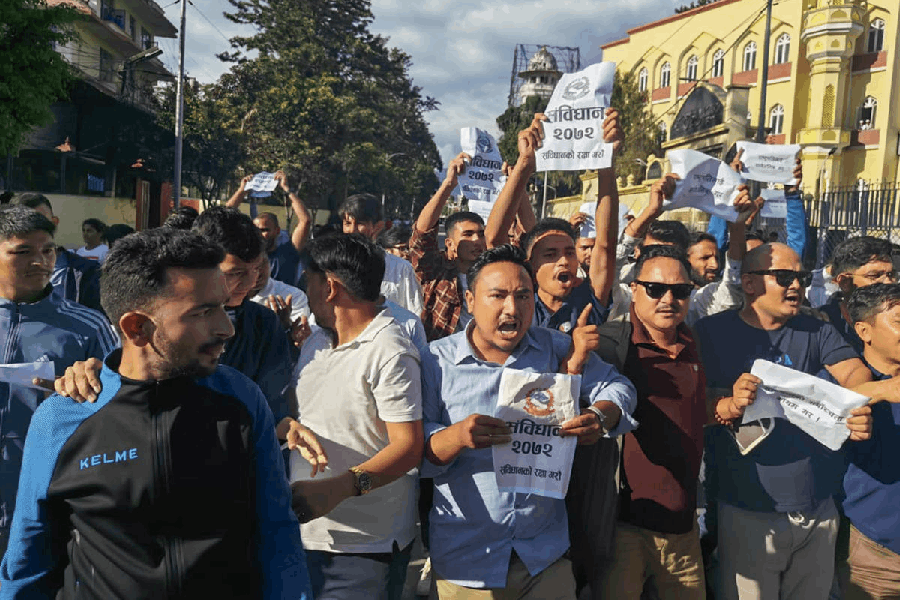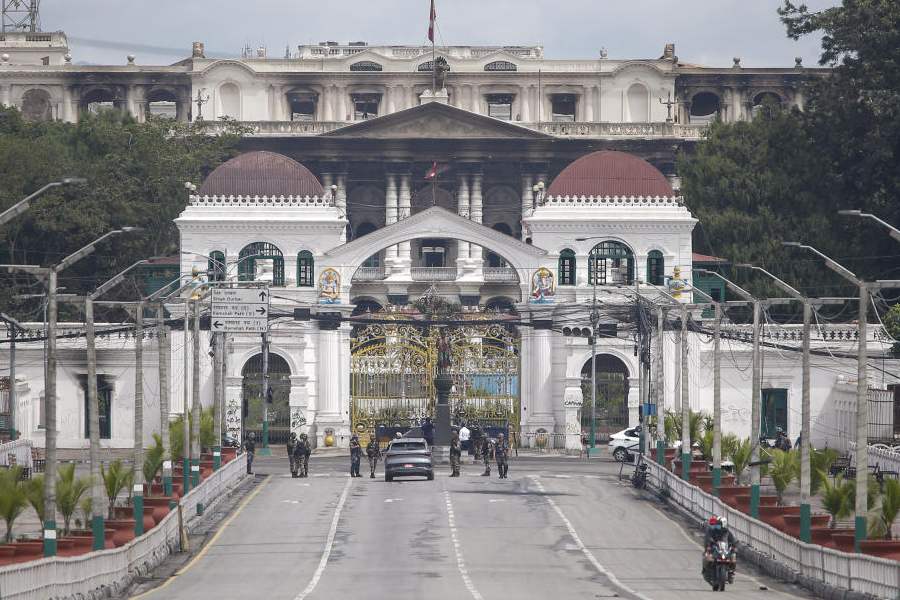Nepal’s youth have risen to the forefront of politics after days of violent anti-corruption protests shook the Himalayan nation, leaving 30 people dead and compelling Prime Minister K. P. Sharma Oli to step down.
The demonstrators, largely driven by young people in their late teens and early twenties, are now shaping the conversation around the country’s future.
From Kathmandu to provincial towns, voices of students, workers and young professionals reveal frustration with corruption and a demand for fresh leadership.
“I was there in the parliament house and saw people getting shot in front of me. This protest is about the corruption in the country. Now we have thrown out the government completely. We got what we wanted. My hope is to have new, elected leaders. We don’t want old leaders,” said Pawan Sharma, a 20-year-old student.
For 19-year-old garment factory worker Srijana Bhujel, the issue is not only corruption but also migration.
“I hope the future will be free from corruption. I also wish that the millions of young people who have moved abroad will stop doing so. I want the youth who have gone abroad to return to Nepal, and I hope the days ahead will be better than the past,” she said.
Some protesters voiced concern about the unrest itself. “All this vandalism should not have been done, history should not have been destroyed. It is now our duty to build this nation. We should stop the youth from going abroad. Employment must be generated in the country,” said 21-year-old student Sunita Khadka.
Others were direct about political change. “Corrupt politicians must be thrashed out from Parliament and new leaders with a good vision must be appointed. This fight is against corruption. My expectation is that all systems will be managed properly. These are my expectations from the new government,” said Avash Regmi, a 25-year-old freelance photographer.
Even those unable to join the frontlines expressed their discontent. “My mother didn’t let me go for the main protest. I wanted to do something for my country so I’m helping with cleaning the areas where they protested. Everyone was protesting against the corrupt ministers, that was the main thing to do. The government started shooting students in their school uniforms, that shouldn’t be done. I want, and everyone needs, a good leader, someone who can lead the country in a good way,” said 17-year-old student Amrita Tiwari.
Unemployment remains a dominant theme. “We didn’t have any employment opportunities. All young, middle-class individuals like me had to move out of the country. I think we did the right thing by protesting, by raising our voice. If power goes to the right, young individuals, Nepal will move in the right direction, otherwise it will get worse. I hope young leaders will be there to save Nepal,” said 27-year-old teacher Saran Shrestha.
For some, the protests have shifted personal decisions. “Earlier, I thought I would go abroad to pursue opportunities, as I felt there was no future here after completing my high school but now my perspective has changed, my goal is to contribute to building Nepal and creating a better future here,” said 18-year-old student Karan Kulung.
The demand for ethical leadership was echoed by 20-year-old restaurant worker Sabin Tamang.
“To develop our country, we need to choose good people instead of choosing relatives. We should hand over the future of the country to a person who has good ideology and is not self-centred,” he said.
The expectations go beyond politics for many. “We expect to make our country like Denmark, free of corruption. We hope to choose a kind and hardworking leader who will make our country beautiful in every aspect. We, all Gen Z, all Nepalis, expect the same things from our new leader, who will be chosen in a few days,” said student Anjana Tiwari, 20.
Kathmandu mayor Balendra Shah, popularly known as Balen, urged protesters to “not panic and remain patient,” saying the country is “now stepping towards a golden future.”
In a post on X, written in Nepali, he said: “..the nation is passing through a situation never seen before in history. You are now stepping towards a golden future…please do not panic, remain patient. The country is now moving towards an interim government, which will conduct fresh elections. The task of this interim/election government will be to hold elections and give the country a new mandate.”
Shah also threw his weight behind former chief justice Sushila Karki, Nepal’s first woman to hold the post, as interim leader.
“To lead this interim/election government, there is complete support for the proposal from you in favour of former chief justice Sushila Karki. I want to sincerely respect your wisdom, judgement, and unity. This shows how mature you truly are. To those friends who are eager to take leadership right now, I want to say – your passion, your ideas, your integrity are what the country needs in a permanent way, not just temporarily. For that, elections will certainly be held. Please do not be in a hurry,” he wrote.
He appealed directly to the President and said: “Please immediately dissolve Parliament and form an interim government to safeguard the historic revolution brought by Gen-Z.”
Representatives of the protesting group met Nepalese President Ramchandra Paudel and Army Chief Ashok Raj Sigdel at army headquarters in Bhadrakali on Thursday to discuss the formation of an interim government.
Among the names being considered by the Gen Z group were former chief justice Sushila Karki, Kathmandu Mayor Balendra Shah, former CEO of Nepal Electricity Authority Kulman Ghising and Mayor of Dharan, Harka Sampang.











